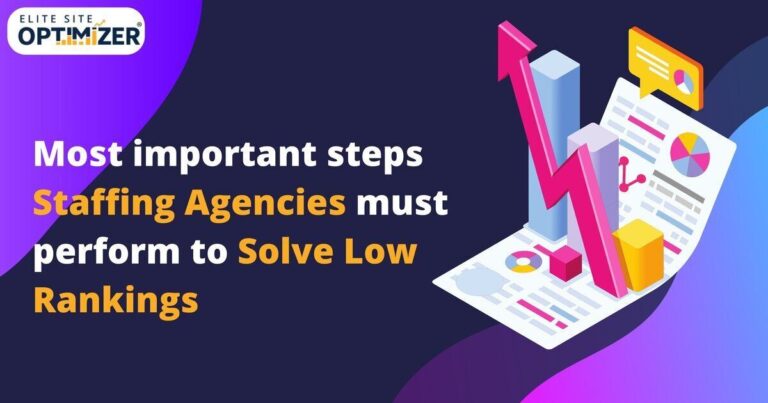There is no magical formula to climb to the top 10 spots in search engines. If you want to get your website ranked on the first page of the search results, you need to focus on SEO and keyword strategy. Google has reported billions of searches performed every day. With such a massive number of searches, how do you find the right keyword that will target your audience and bring organic traffic to your website?
That’s where the keyword research checklist comes into play. A big portion of your website SEO is keyword search and placement. How frequently you use the keywords, where do you place them, and how evenly you have distributed them throughout the content are key factors that decide the ranking position for your website. But, the question is “how do you find the best keyword”? Let’s check out our keyword research checklist every website owner needs for 2022. But before that, let’s see why keyword research is important.
Why Do You Need Keyword Research?
The keyword might not be the only thing responsible for your website ranking, but it’s definitely an important factor for your SEO. Without keyword research, your content will be lost in millions of existing blogs in the same niche. That’s why your content optimization starts with keyword research. Find the best keywords that will work for your website and bring your target audience to your landing page. The goal is to increase your visibility in the search engine for that specific keyword.
Now, keywords do not mean you can use any random words and phrases on your website. Your site has to be optimized for terms that are relevant to your services and can address your audiences’ problems. That’s what your audience will type in the Google search bar. They type their problems and look for solutions. You need to make sure your keywords are strong enough to get your website on the top of the search results.
Identify a Topic
Before you go ahead with keyword research, start with identifying a topic that can draw the attention of your audience. People don’t search for a brand on Google. They don’t even know about your brand and that you exist until they come across your website randomly. It happens when you post content that resolves customers’ pain points. Simply put, you publish blogs and videos that your audience can relate to.
So, the first thing you need to do is search for your audiences’ pain points. Get ideas from your competitors’ blogs to see the type of content they are publishing, how they are addressing their audiences’ pain points, what efforts they are taking to bring their target audience to their website, and so on. These little things can mean a difference between a successful website and a failing company.

It is easier to research keywords for your content when you have a topic ready. Focus on one niche. Stick to it. This will allow you to maintain consistency in your blogs.
Use Google Suggest
Although the best keyword research tool is highly recommended, it is not necessary. Google Suggest is your go-to tool for finding keywords with high search volume. You must have noticed how Google suggests some phrases when you type your search query in the Google search bar. Well, this is how website owners find the right keywords to target.
Google shows you keywords that people frequently use. Now that it’s coming straight from Google, you know that these keywords will work for your site (as long as they are relevant to your services). Besides, it is the simplest trick. You don’t have to do any research. Just open Google, type the seed keywords (the initial or main words) in the search bar. Google will show you a list of the most commonly typed keywords in that category.
Find Long-Tail Keywords
Keywords are divided into three parts—the head, the body, and the long tail. The short-tail keywords or the head is often not sufficient. It doesn’t give you detailed information about what exactly the business does. That’s why businesses need to consider implementing long-tail keywords that have a phrase-like structure. These keywords tell your audience what your business does, how it can solve their pain points, and what exactly your service includes.
Long-tail keywords, as the name suggests, are specific and detailed. These are not 1-2 word terms, instead, these are in the question form or long phrases that explain your services in detail. For example, if you are running a hair salon and targeting an audience looking for hair care products, a few long-tail keywords for your website are haircare products for long and shiny hair, how to treat hair fall with organic shampoos, best hairstyles for summer, and so on.
Let’s understand this concept with an example.

Suppose you have a business of vegetable plants, the short-tail keyword for your business will be tomato plants or vegetable plants. Since these keywords do not describe your business or what exactly you are trying to sell, they have a high search volume. Hundreds of thousands of people will search for tomato plants on the internet every day. The chances your website will show up on the first page of the search results are quite slim unless it is a high-authority website.
So, your target should be long-tail and less popular keywords that have a low search volume but are more specific. Put it this way, you should consider phrases that address your customer’s pain points. For instance, “why are my vegetable plants not growing” is a long-tail keyword with a very low search volume. That doesn’t mean it has a low chance of ranking. In fact, every time a user types this keyword in the search, your website is highly likely to show up on the top because of low competition. The best part is that such keywords help you filter the uninterested audience.
Use Google Keyword Planner
If you are not convinced with the Google Suggest function, you can try Google Keyword Planner for more options. The tool is for Google Ads and is pretty useful for keyword research for SEO purposes. What we loved about Google Keyword Planner is that it shows you the number of searches for the particular keyword and the competition (categorized into low, medium, and high).
Focus on Keywords with Low Competition
Low-competition keywords are considered an ideal choice for people who want to get their websites ranked quickly. If you target short-tail and popular keywords that have a high search volume, chances are tons of websites are already ranking for these keywords. So, getting your blog ranked on top of the search engine with popular keywords can be tricky. You can use the advanced keyword research tools to get insights like—search volume, CPC, estimated visits, search trends, and keyword difficulty.
Read More: How Important is Keyword Analysis?
Track the Success of Your Keywords
It’s likely that your website may rank for some keywords, while other keywords won’t show any results at all. It’s normal! Even with the right keyword strategy, it takes 8-12 months for any website to secure a place in the search engine. That’s because Google is home to a large number of websites targeting different types of keywords. Test your keywords and their progress to get a clear picture of what’s working and what’s not. This strategy will help you know which keyword is bringing conversions and which is a waste of time.
Conduct Competitive Keyword Research
People spend weeks and months doing keyword research. Still, they end up with short-tail, highly competitive phrases that hardly make any difference in their website rankings and optimization. If you want to see the best results, you need to focus on your competitors. See what they are doing. If something is working for them, it will most likely work for your business as well. That’s smart work.
Why spend your time looking for keywords when you can use the same keyword as your competitors and rank on the first page of the search results. You have to do better than your competitors though. Don’t just copy and paste their keywords into your content. Research their highest ranking keywords and make a few tweaks here and there to make it unique.
Regular Audits are Important
So, you have used a set of long-tail and short-tail keywords on your website. How do you know if they are working for your SEO or not? That’s where audits come into the picture. Just like how you are supposed to conduct technical SEO audits, keyword audits are important. This will help you identify the keywords that are not working for your site and those bringing in the best results. Based on these audits, you can decide which keywords to continue using and which ones are not making sense.
What Not to Do
Don’t focus so much on keyword optimization that you ruin your content quality just to rank your website. Your website will not perform well if you stuff keywords excessively throughout the content. Here’s what you should never do during keyword optimization:
- Placing keywords in random places (where they don’t fit)
- Misspelling the keywords
- Using too many short-tail keywords
- Not using the right keywords
Keyword research is important for all types and sizes of online businesses. You can’t rank your website without optimizing it for search engines. And, website optimization for search engines requires keyword research. Fortunately, there are plenty of tools that can help make keyword research a quick and simple task for you.
This was the keyword research checklist for 2022. Hope this helps get your website on the first 10 search results on Google.







